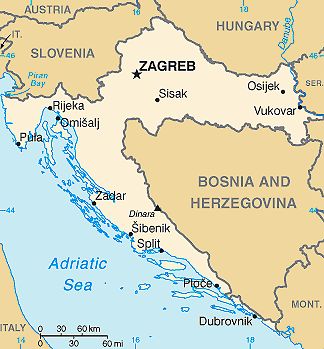OPATIJA, Croatia -- Immediately, the signs along the road started to look familiar. The landscape tried with some success to transport me to an awfully different, dangerous time. I felt my back stiffen a little: back to the Balkans. This time, however, no checkpoints manned by armed men awaited. No bombed out homes marked the path of spreading carnage. Before I even had a chance to blink away the images of the 1990s in this region that brought the world that horrific expression "ethnic cleansing," my 21st century cell phone beeped with a text message. "Welcome to Croatia!" The same message no doubt startles mobile phone owners among the more than 10 million visitors who take their vacations along the Adriatic coast of Croatia every year, on the same Dalmatian coast that saw the siege and bombing of Dubrovnik; in the same Balkan region that brought the wars that dismembered the old Yugoslavia, where in Bosnia, Croatia and Kosovo, fighting between former neighbors slashed a painful wound on the edge -- or was it the heart -- of modern Europe. Yes, war is hell, as the overused cliché declares to worldwide assent. And few would assent more emphatically and more knowingly than the people of this region.
Croatia: Building Peace on the Cooling Embers of War

